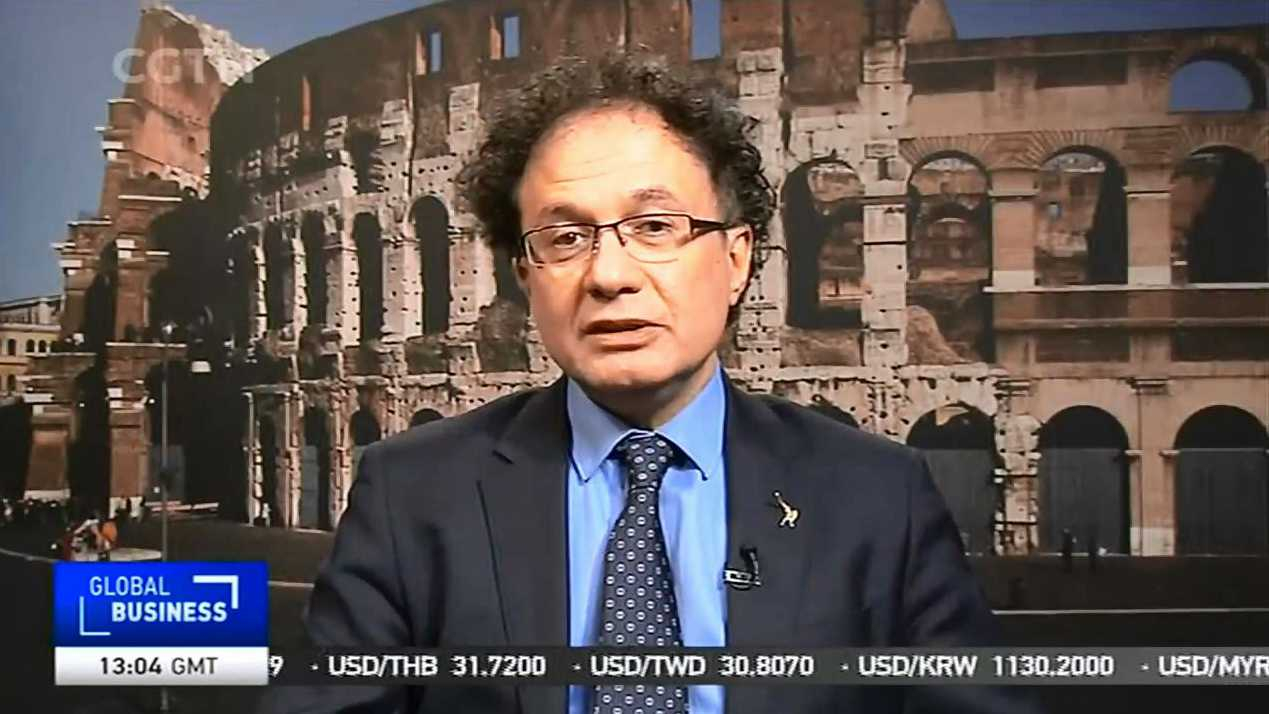
Economy
16:51, 21-Mar-2019
China and Italy have huge potential for bilateral trade and investment
Updated
18:28, 21-Mar-2019
CGTN Global Business
08:10

China and Italy have huge potential in bilateral trade and investment, and could enhance collaborations in terms of Belt and Road Initiative, mobile payment, infrastructure and green economy, according to Michele Geraci, undersecretary of Italian Ministry of Economic Development.
Currently, Italy is China's fifth largest trading partner in the European Union (EU), and China is Italy's largest trading partner in Asia. According to Chinese President Xi Jinping's signed article for Italian newspaper, two-way trade exceeded 50 billion U.S. dollars in 2018 and investment surpassed 20 billion U.S. dollars in accumulative terms.
“We see lots of opportunities,” Geraci said. Based on Geraci, Italy wants to catch up with France and Germany when it comes to working with China. Meanwhile, he mentioned that Italy has an ambition for increasing bilateral investments in various areas, such as mobile payment, digital economy, green economy and infrastructure.
“Normally people believed that we just want to attract investment [from China]. But that's not entirely correct. We would also like Italian companies to be more active in China in various areas,” he added, noting that the two countries could work together in areas “where Italy has slightly lagged behind,” as well as in other regions like Middle East, Africa.

Michele Geraci, undersecretary of Italian Ministry of Economic Development /CGTN Photo
Michele Geraci, undersecretary of Italian Ministry of Economic Development /CGTN Photo
“I'm very optimistic that it could be a new stage for a very intensive commercial relationship between the two countries,” Geraci stressed.
Italy has planned to sign a memorandum of understanding (MoU) to become part of China's Belt and Road Initiative (BRI), the Financial Times reported recently.
Italy is not the first country within EU to sign a BRI MoU, he said, but stressing that this is the first time for Italy to take a leading role in Europe and the country would work hard to help citizens and its European partners understand the significance behind.
“Our people have not been used to it. Even our European partners have not been used to this. We have listened to some concerns and questions. Over the last few weeks, we explained [them] successfully. Now, more and more people start to see benefits,” he explained.
Geraci continued to say. “At the end of the day, this is not a political agreement. It's a commercial agreement… Once we clarified this, everyone seems to agree that doing more businesses with China on both trade and investment is good. It's good for both countries.”
But he also acknowledged that how to deeper engage in the BRI will be a challenge for Italian businesses, saying that Italian government is helping companies doing businesses with China.
“Governments can set up the general framework and identify opportunities. This is our duty to inform our companies to exactly let our Italian companies know about opportunities existing in China,” Geraci told CGTN.

SITEMAP
Copyright © 2018 CGTN. Beijing ICP prepared NO.16065310-3
Copyright © 2018 CGTN. Beijing ICP prepared NO.16065310-3